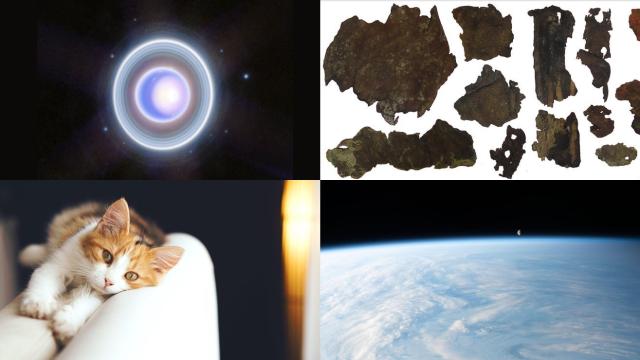The week’s top three stories on the science beat all made me a little uncomfortable, to be honest. The news that scientists found a credible link between having a cat during your childhood and later being diagnosed with schizophrenia was troubling. Then there was the 2,400-year-old leather than turned out to be made of human skin. And don’t get me started on the puns I had to edit out of the Uranus rings article. – Rose Pastore
Uranus Is Luminous and Ringed in New Webb Telescope Image

Yes, that’s Uranus. The giant icy orb looks more like an agatized dinosaur egg than a planet in this new image from the Webb Space Telescope. Uranus, the seventh planet from the Sun, still holds plenty of secrets. We know it’s an ice giant, thought to be mostly (80% or more) icy water, ammonia, and methane surrounding a rocky core, and that it has skies rich with hydrogen sulfide. It also has a ring system, one that’s far less familiar to us than the circles around Saturn. – Isaac Schultz Read More
Researchers Test 2,400-Year-Old Leather and Realize It’s Made of Human Skin

Scythians in modern-day Ukraine made leather out of human skin, a team of researchers has determined, likely as a macabre trophy item. The discovery affirms a claim by the ancient Greek historian Herodotus, who wrote extensively on the Scythian way of life. – Isaac Schultz Read More
Growing Up With Cats Linked to Higher Schizophrenia Risk

Growing up with cats could have a strange effect on your mind, new research suggests. The study, a large review of existing literature, found that cat ownership at a young age was associated with a noticeably higher risk of developing schizophrenia and related disorders—a risk possibly fueled by increased exposure to the cat-hosted parasite Toxoplasma gondii. – Ed Cara Read More
China’s Spaceplane Just Released Six Mysterious Objects in Orbit

China’s Shenlong robotic spaceplane, on its third mission, has added a new layer of intrigue to its space activities by deploying six unidentified objects into Earth’s orbit. – George Dvorsky Read More
Adorable Cat Video Reaches Earth After 19-Million-Mile Journey from Deep Space
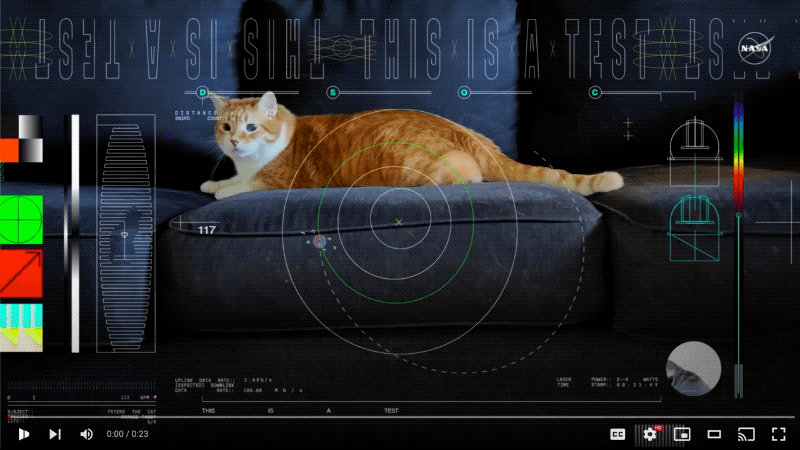
NASA just combined all of my favorite things: space, lasers, and cats. In a first-of-its-kind demonstration of deep space optical communication, the space agency streamed a high-definition video from 19 million miles away from Earth. And as it turns out, NASA is just as obsessed as we are when it comes to sharing cat videos. – Passant Rabie Read More
Behold the Mega Lake: Earth’s Largest Lake in History Lands in Guinness Book of Records

The largest lake in Earth’s history is now in the Guinness Book of World Records. The Paratethys—or Lake Paratethys, if you will—and contained 10 times more water than all of Earth’s modern lakes. – Isaac Schultz Read More
Americans Have a Snack Problem

Your snack habit may be even more calorie-dense than you think, recent research suggests. A study estimated that snacking contributes to around 20% of an average American’s daily caloric intake, and these snacks often add little nutritional value. The scientists found, though, that people with type 2 diabetes seem to eat fewer snack-related calories. – Ed Cara Read More
NASA’s Asteroid-Hunting Telescope Is Being Dragged Down by the Sun
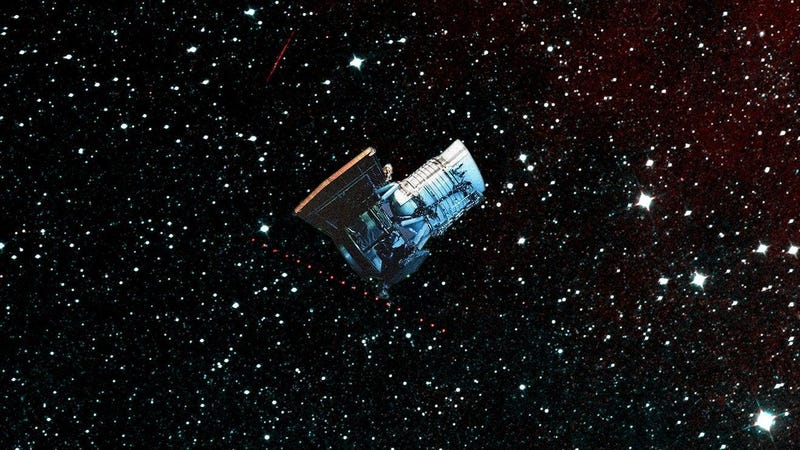
A diligent surveyor of the night skies, NEOWISE is sadly approaching its fiery demise as the Sun’s erratic outbursts are causing the infrared telescope to gradually fall out of its orbit before it eventually burns up in Earth’s atmosphere. – Passant Rabie Read More
See the Breathtaking Power of Iceland’s Volcanic Eruption
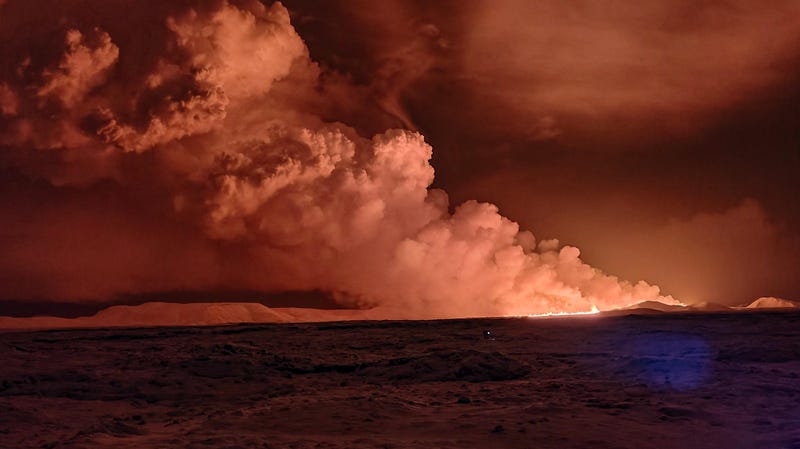
A trepidatious Iceland has waited for this moment for over a month: a large crack in the ground has started to spew up lava. In mid-November, hundreds of tremors—earthquakes that portended the eruptions to come—forced the evacuation of the nearby Icelandic village of Grindavík and at least one famous tourist destination: Iceland’s Blue Lagoon. – Isaac Schultz Read More
Upcoming SpaceX Launch to Include First Direct-to-Cell Starlink Satellites
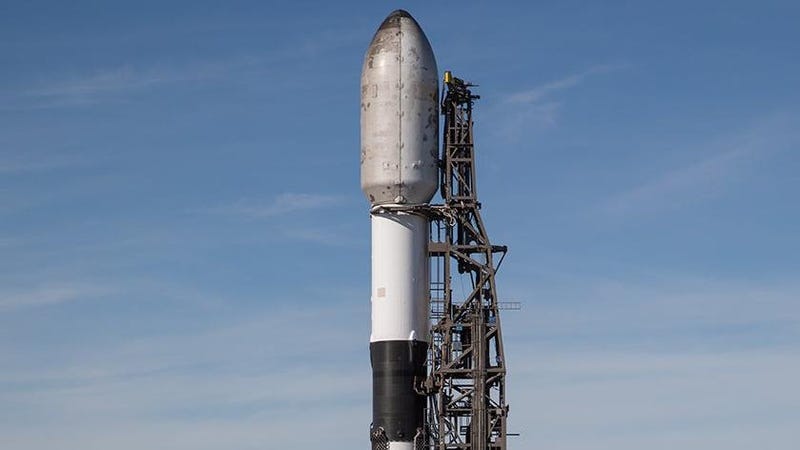
SpaceX is gearing up to launch the first batch of Starlink satellites with direct-to-cell capability, with plans to test the technology in Earth orbit so that it can expand its reach on Earth beyond the range of cell towers. – Passant Rabie Read More
